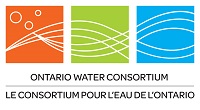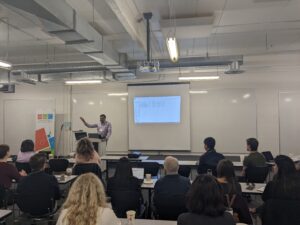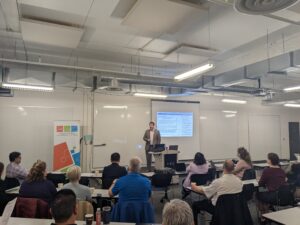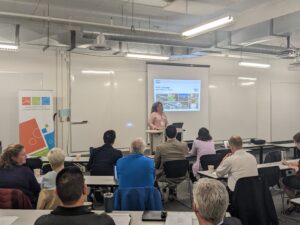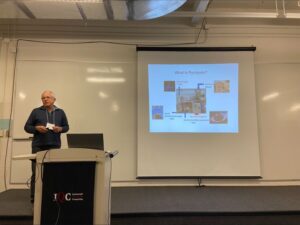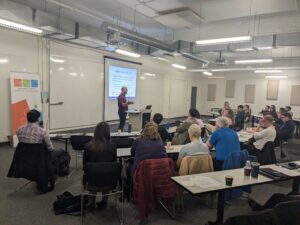On April 27, 2023, the Ontario Water Consortium (OWC) hosted a project Kick-off event titled “Investigating new forever chemicals in Canadian water systems”. A diverse group of stakeholders was brought together, including academic researchers, industry experts, and project partners, to share knowledge and expertise on the issue of per- and poly-fluoroalkyl substances (PFAS). The event also provided a platform for students to present their research projects, which is essential for developing new methods for analyzing and treating PFAS. This event was a crucial step forward in addressing emerging PFAS substances as significant environmental contaminants in Canadian water supplies.
Funded by the NSERC Alliance Option 2 grant, the University of Waterloo and Western University have partnered with USP Technologies, Brown and Caldwell, Ontario Clean Water Agency, Ontario Water Consortium, and seven regional water supply systems in Ontario to address the presence of and treatment of PFAS in water supplies. The partnering facilities provide water and wastewater services to more than 2.5 million Canadians.
The project aims to develop new analytical techniques for detecting PFAS in water and biosolid samples, as well as new machine learning-driven methods to predict the physicochemical properties of PFAS. The project also aims to investigate the destruction of PFAS in biosolids via pyrolysis and in water via vacuum UV (VUV) treatment, which will provide critical information to inform Canadian water systems of potential PFAS contaminants and treatment options.
The event featured various informative presentations and discussions. It began with a warm welcome from the Executive Director of OWC, Rahim Kanji, who introduced the speakers and the project partners.
Co-principal investigator, Professor Scott Hopkins from the University of Waterloo, provided an overview of PFAS, including their uses, potential issues, and recent advances in detecting and treating these species. He also described the efforts to develop new analytical techniques for non-targeted screening and machine learning-driven methods to predict the physicochemical properties of PFAS.
Katherine Bell, Managing Director of Water Strategy at Brown & Caldwell, discussed the global regulatory environment around PFAS and its impact on North American water and wastewater utilities.
Finally, co-principal investigator Professor Franco Berruti from Western University showcased research activities on the pyrolytic treatment of PFAS-contaminated biosolids and the development of new knowledge on the PFAS adsorption from water and its treatment with UV in collaboration with Dr. Domenico Santoro from USP Technologies.
The event also included lightening thesis presentations from graduate students at the University of Waterloo and Western University. The students presented their research projects, which were focused on developing new analysis methods, new machine-learning strategies for chemical analysis, and preliminary experimental results on the pyrolytic destruction of PFAS from biosolids.
After the presentations, there was a short introduction of the project partners, including organizational background, their role in the project, the importance of the project to their organizations, and the expected outcomes.
In the next steps of the project:
• New analytical methods will be developed to detect PFAS in water and sludge.
• Data-driven modelling approach will be adopted to predict the fate and properties of the PFAS in the environment.
• New PFAS destruction methods will be investigated in detail, such as high-temperature pyrolysis, thermal oxidation, and VUV in lab and pilot scales.
The event concluded with a group discussion, project feedback, and a networking session. Attendees were provided with feedback sheets, which included questions about potential risks and opportunities for improvement for the project, as well as new ideas that could be introduced to the project and overall recommendations.
Overall, the Project’s launch was very successful, bringing together a diverse group of stakeholders to address the issue of PFAS in Canadian water supplies. The event highlighted the importance of collaboration and the need for continued research and development in this area. It also showcased the importance of investing in the next generation of researchers, who will be crucial in developing new methods and technologies for addressing emerging environmental contaminants.
